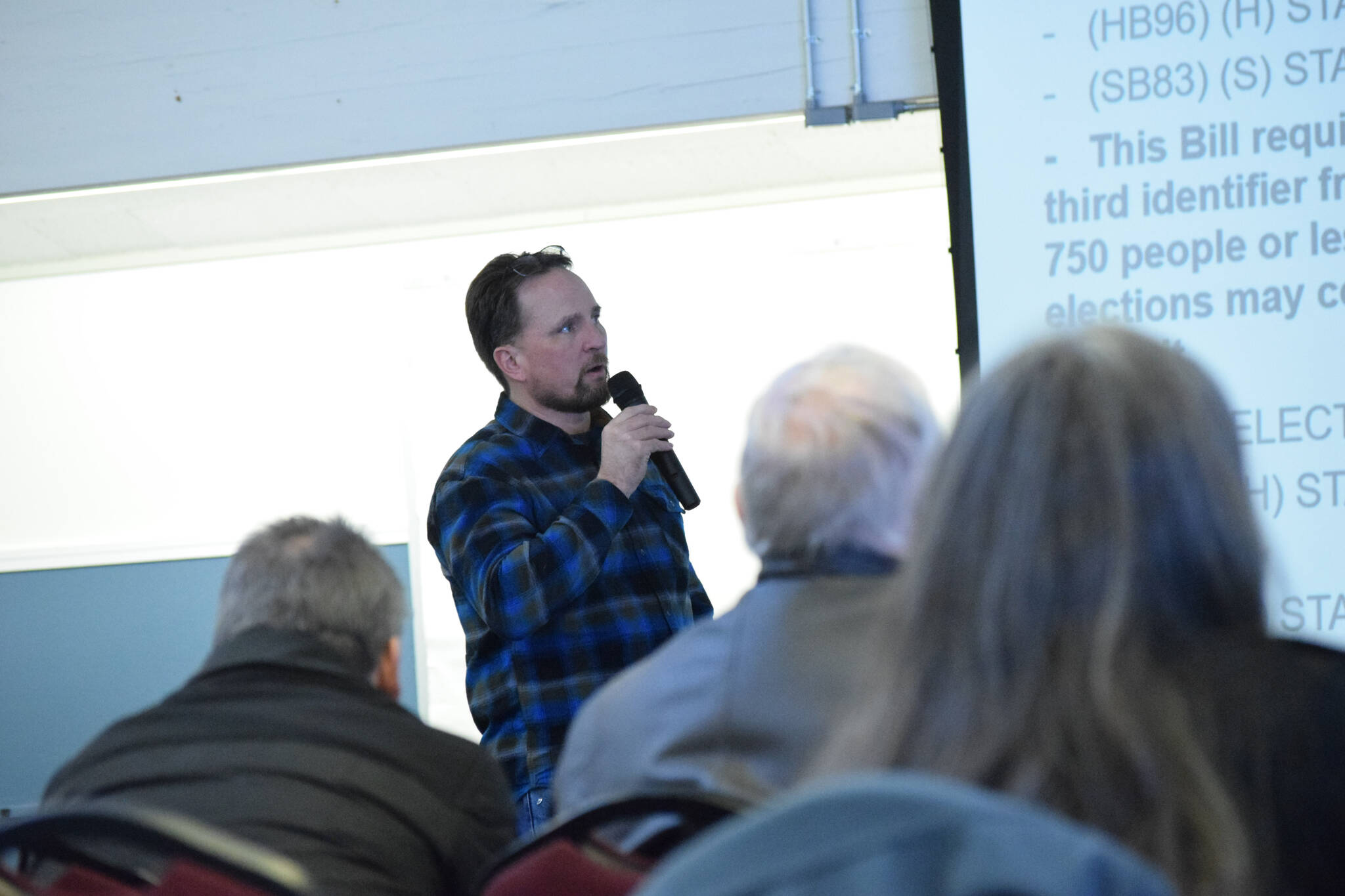KENAI — Alaska State House Rep. Ben Carpenter, R-Nikiski, on Saturday spoke to constituents about the upcoming election cycle at a town hall meeting at the Nikiski Community Recreation Center.
He primarily discussed election security, highlighting some bills up for deliberation in the Legislature, and provided information on Alaska’s new ranked choice voting system.
“There has been quite a few questions on election security, election integrity and what’s going to go on with the next election, and I thought I would have to take a few minutes or about an hour to have a conversation with you,” Carpenter said to constituents.
The bills he presented at the town hall included legislation to increase identification requirements for absentee voters, repeal automatic voter registration with an Alaska Permanent Fund dividend application, increase election worker pay and reform the legal consequences for voter fraud.
House Bill 196 is just one of the bills Carpenter emphasized during the town hall. He’s also a co-sponsor of the legislation.
As written, HB 196 would designate a class C felony charge to anyone charged with voter and election fraud, which includes tampering with voter registration, ballots and election data.
He said many of the election integrity bills, including HB 196, address some of the same concerns.
“That’s similar to a couple of the other bills,” Carpenter said.
Among other clauses, HB 196 would also institute protocols to review voter registration in order to restrain fraud for ballots coming from deceased voters, people convicted of a “felony involving moral turpitude,” and anyone otherwise ineligible to vote in the state of Alaska.
The whole bill can be read at http://www.akleg.gov/PDF/32/Bills/HB0196A.PDF.
In addition to a presentation about different bills up for debate in the Legislature, Carpenter spoke about the new ranked choice system.
The lawmaker made it clear he personally did not support ranked choice voting, but felt the need to discuss the system in detail.
“We all have this new voting system that we’re going to have to deal with this election season, because it was a ballot measure, and it’s in effect for two years,” Carpenter said Saturday. “We can change it if there’s enough will within the Legislature to change it, or if there’s another ballot measure that changes, but this is what we’re stuck with.”
Ranked choice was narrowly approved by voters in 2020, according to the Associated Press, and the upcoming election will be the first determined by the new system.
With ranked choice, all candidates — regardless of party affiliation — will appear on the primary ballot. The top four will advance to the general election, where voters will rank candidates by preference.
According to the Alaska Division of Elections, to win the general election a candidate must receive over half of the first choice votes. If no one wins over 50% plus one vote of the first choice votes in round one, the election enters round two.
In round two the candidate with the least number of first choice votes is eliminated. The ballots of the people whose first choice candidate was eliminated are then redistributed — their last choice votes get moved to their second choice selection. The vote redistribution process continues until a candidate receives 50% plus one vote. If only two candidates remain, the one with more votes wins.
Carpenter said the new system will require an element of strategy, because of the potential for multiple rounds of voting with just a single ballot.
“If we can’t get 50% plus one, then how are we distributing our votes for the second round?” he said. “And then now it’s just a guessing game, or Russian roulette or whatever you want to say. … You’ve got to get a strategy there. Who’s going to get the most votes for the next round?”
Carpenter said he also plans to host other town halls on the central peninsula to present the same information. The lawmaker is up for reelection this fall.
This story has been updated to clarify the process of ranked choice voting.
• Reach reporter Camille Botello at camille.botello@peninsulaclarion.com.

